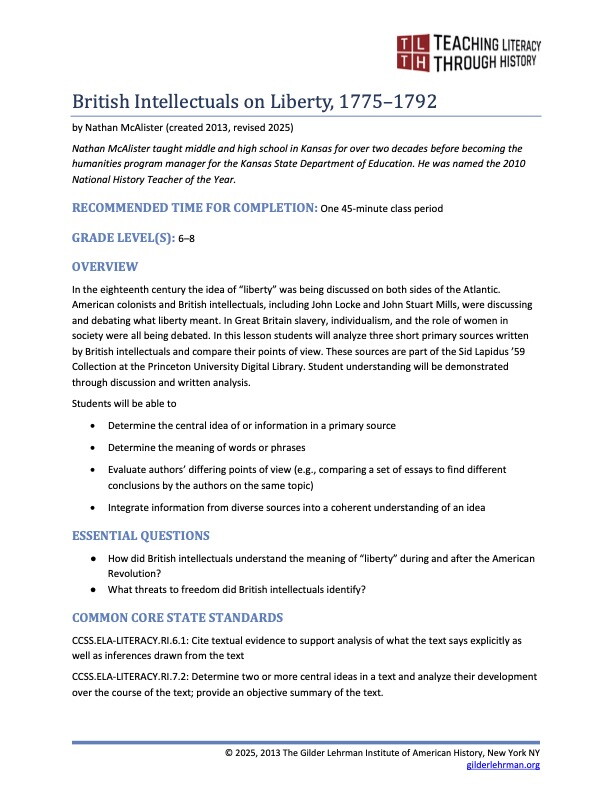Lesson by Nathan McAlister
Grade Level: 6–8
Number of Class Periods: 1

Lesson Plan Author: Nathan McAlister
CCSS.ELA-LITERACY.RI.6.1: Cite textual evidence to support analysis of what the text says explicitly as well as inferences drawn from the text.
CCSS.ELA-LITERACY.RI.7.2: Determine two or more central ideas in a text and analyze their development over the course of the text; provide an objective summary of the text.
CCSS.ELA-LITERACY.RI.8.6: Determine an author’s point of view or purpose in a text and analyze how the author acknowledges and responds to conflicting evidence or viewpoints.
How did British intellectuals understand the meaning of “liberty” during and after the American
Revolution?
What threats to freedom did British intellectuals identify?
Edmund Burke, The Speech of Edmund Burke, Esq; on Moving His Resolutions for Conciliation with the Colonies, March 22, 1775, London, 1775
Ottobah Cugoano, Thoughts and Sentiments on the Evil and Wicked Traffic of the Slavery and Commerce of the Human Species, Humbly Submitted to the Inhabitants of Great-Britain, London, 1787
Mary Wollstonecraft, A Vindication of the Rights of Women: With Strictures on Political and Moral Subjects, London, 1792